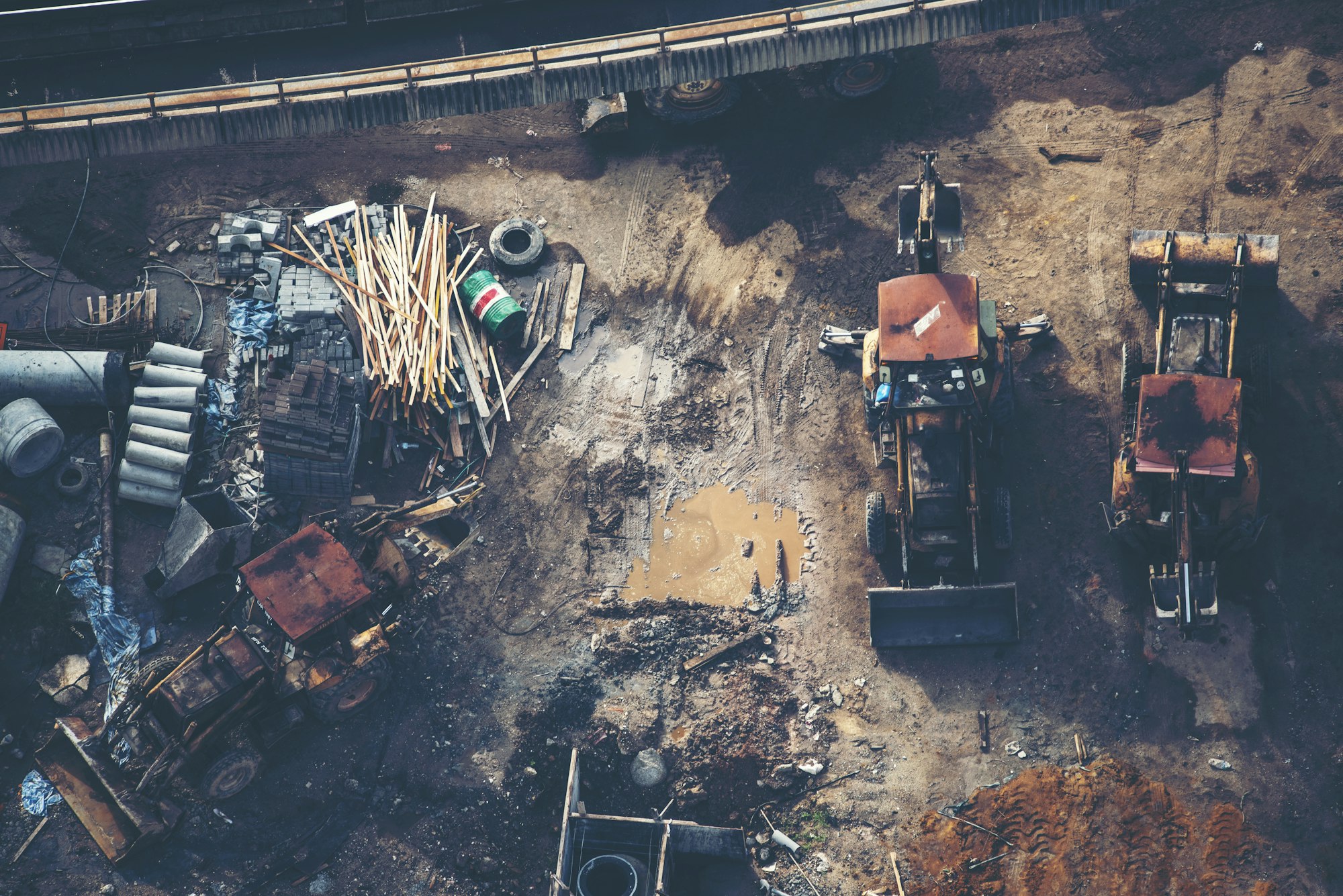In the wake of the digital revolution, the construction industry, like many other sectors, is being reshaped by the adoption of smart technology. The Internet of Things (IoT), in particular, has become a game-changing force, enabling construction companies to drive efficiency, optimise resource allocation, and improve project management across multiple sites. But how exactly are UK construction firms leveraging this technology? Let’s delve in to explore this evolving landscape!
Harnessing the Power of Real-Time Data
The first step in utilising IoT technology in the construction industry is understanding the importance of real-time data. This becomes increasingly critical when managing multi-site projects, as decision-makers and site managers need up-to-date information at their fingertips to make informed decisions.
Topic to read : How Can UK Artisanal Food Brands Utilize Storytelling for Brand Differentiation?
IoT sensors installed in construction equipment enable companies to monitor the usage and performance of their machinery in real-time. This data is invaluable for predicting potential equipment failures, planning routine maintenance, and reducing downtime. But it’s not just about machinery – these sensors can also monitor environmental conditions, worker health and safety, and the progress of construction tasks.
Smart devices, such as wearables equipped with GPS and biometric sensors, can provide real-time updates on worker location, activity, and health status. This data can be used to enhance worker safety, improve task allocation and scheduling, and even reduce the risk of costly delays and accidents.
Topic to read : How Can UK Law Firms Integrate AI to Improve Case Management Efficiency?
Implementing Smart Building Tools and Techniques
The next approach involves implementing smart building tools and techniques, which can significantly streamline the construction process and increase the efficiency of multi-site management.
One such tool is Building Information Modelling (BIM), a digital representation of the physical and functional characteristics of a facility. When integrated with IoT, BIM can serve as a real-time model of the building process, allowing project managers to monitor progress, identify potential issues, and make modifications in real-time.
Another example of a smart building tool is Digital Twin technology, which creates a virtual replica of a physical building or system. By integrating IoT sensors with a digital twin, construction companies can simulate various scenarios, predict outcomes, and make data-driven decisions.
Drones are another smart device that construction companies are leveraging. Equipped with cameras and sensors, drones can monitor and inspect construction sites, provide real-time aerial views, and gather critical data that can assist in decision-making and risk mitigation.
Energy Management and Sustainability
The IoT is also playing a pivotal role in promoting energy efficiency and sustainability in construction. Energy management is a key concern for any construction project, but it becomes particularly challenging when dealing with multiple sites.
Smart energy meters can provide real-time data on energy consumption, helping construction companies identify energy waste and make adjustments accordingly. Additionally, IoT-enabled systems can automate aspects of energy usage, such as lighting or heating, based on occupancy or time of day.
Moreover, IoT can help construction companies track and reduce their carbon footprint. Sensors can monitor emissions from construction equipment, while data analysis tools can provide insights into the environmental impact of various construction methods and materials.
Ensuring Project Security with IoT
With the increased use of digital tools and devices, project security has become a crucial factor for construction companies. IoT technology can help in this aspect too.
Surveillance cameras, motion sensors, and access control systems can provide real-time monitoring and control over construction sites, helping prevent theft, vandalism, and unauthorised access. Moreover, IoT devices can be integrated with security software to provide real-time alerts and enable swift response to security incidents.
Notably, cybersecurity is also a key consideration, given the increasing reliance on digital data and systems. Construction companies need to ensure that their IoT devices and networks are protected against cyber threats, and that data is securely stored and transmitted.
Adapting to Changing Industry Practices with IoT
As the construction industry continues to evolve, adapting to changing industry practices is essential for companies. This is where the IoT can play a pivotal role.
The data gathered through IoT devices can provide valuable insights into industry trends and best practices. By analysing this data, construction companies can identify opportunities for improvement, make informed decisions about resource allocation and project strategies, and stay ahead of the curve.
Furthermore, the integration of IoT with other emerging technologies, such as artificial intelligence and machine learning, can open up new possibilities for optimising construction processes and managing multi-site projects.
In conclusion, the IoT has significant potential to revolutionise the way UK construction companies manage multi-site projects. By harnessing real-time data, implementing smart building tools, promoting energy efficiency, ensuring project security, and adapting to industry changes, companies can leverage this technology to drive efficiency, reduce costs, and succeed in the digital age of construction.
Expanding Data Management Capabilities
In an era where data is king, the management of vast amounts of data produced by IoT devices is proving to be a critical aspect of multi-site construction projects. The ability to collect, store, analyse, and utilise this data effectively is what gives construction companies the edge in managing complex, multi-site operations.
The integration of IoT devices on construction sites generates a tremendous amount of real-time data, from equipment usage and performance metrics to environmental conditions and worker activities. This data must be properly managed and analysed to make it truly useful.
Cloud-based data management systems are one way in which construction companies are handling this data deluge. These systems allow for the secure storage and seamless access to data from anywhere, at any time, which is particularly useful for multi-site projects.
Additionally, machine learning and artificial intelligence (AI) are being increasingly used to analyse this data, predict trends, and inform decision-making. For instance, AI algorithms can analyse data from IoT sensors to predict equipment failures or identify safety risks, enabling preventive action to be taken.
Importantly, robust data management also extends to ensuring the security and privacy of data. With the surge in digital data comes an increased risk of cyber threats. As such, construction companies need to implement strong cybersecurity measures to protect their data, including encryption techniques, secure access controls, and regular security audits.
Embracing the Future of IoT in Construction
The future of the construction industry is inherently tied to the evolution of IoT. As the capabilities of IoT technology expand, so too does the potential for construction companies to improve their multi-site project management.
Digital twins are one emerging IoT technology with significant potential. By creating a digital replica of a physical building, construction companies can simulate, analyse and optimise various scenarios before they happen in reality. This can lead to significant cost savings, improved efficiency, and reduced risk.
Another upcoming trend is the integration of IoT with augmented reality (AR). This technology could allow construction workers to visualise design plans in real-world environments, enhancing their understanding and reducing the likelihood of errors.
As we move forward, the adoption of IoT in construction is likely to become more widespread, driven by the proven benefits of enhanced efficiency, cost savings, and improved project management. However, this will also require construction companies to invest in IoT skills training for their workforce, and to adapt their organisational structures and processes to fully leverage the benefits of this technology.
In conclusion, the use of IoT is revolutionising the way UK construction companies manage multi-site projects. It holds the key to improved efficiency, sustainability, security, and adaptability in an ever-evolving industry landscape. However, to fully harness the power of IoT, companies must also consider the associated challenges, such as data management and cybersecurity, and take proactive measures to address them. The future of the construction industry is digital, and IoT is leading the way.






